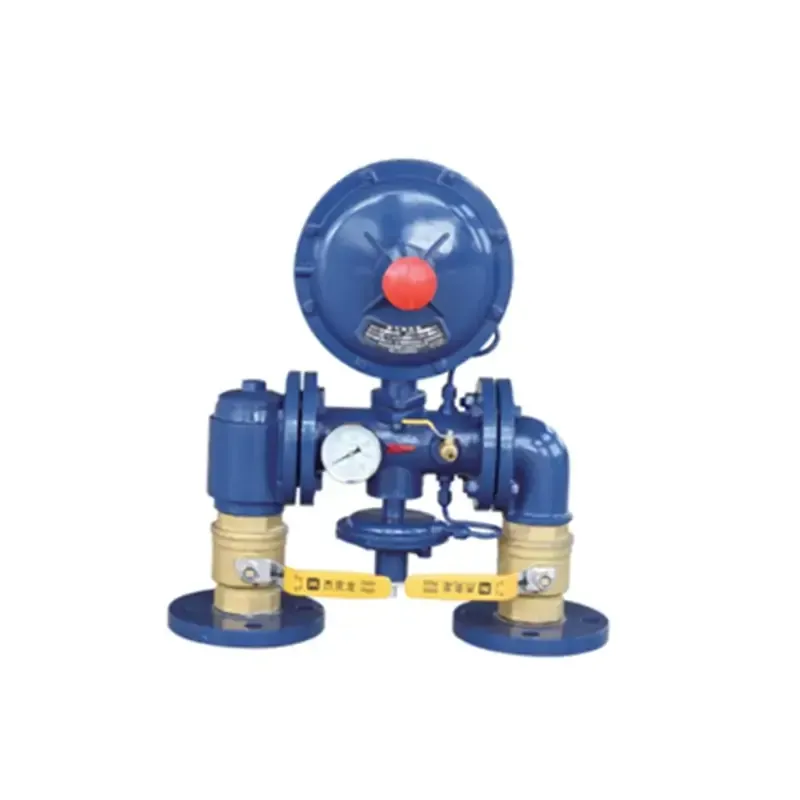
Nov . 26, 2024 18:51
Back to list
Natural Gas Filter Selection for Optimal Performance and Efficiency
The Role of Natural Gas Filter in Modern Energy Systems
Natural gas has become an integral component of the global energy landscape, playing a pivotal role in meeting the industrial, residential, and commercial energy needs. As the demand for cleaner and more efficient energy sources rises, the significance of natural gas continues to grow. However, the effective utilization of natural gas hinges on the quality of the gas supplied. This is where natural gas filtering systems play a critical role.
Natural gas is often extracted from underground reservoirs mixed with various impurities and contaminants, including water vapor, hydrogen sulfide, carbon dioxide, and particulate matter. These impurities can significantly affect the safety, efficiency, and longevity of natural gas processing, transportation, and end-use applications. Therefore, the removal of these contaminants is essential, making natural gas filters indispensable in the supply chain.
Types of Natural Gas Filters
Natural gas filters are designed to eliminate these contaminants to ensure the gas adheres to industry standards and is suitable for use in various applications. There are primarily two types of filters used in natural gas processing coalescing filters and particulate filters.
1. Coalescing Filters These filters are specifically designed to remove water droplets and other liquid contaminants from natural gas. They work on the principle of coalescence, where small droplets merge to form larger droplets, which can then be removed from the gas stream. This is crucial as the presence of water in natural gas can lead to the formation of hydrates, which can block pipelines and damage equipment.
.
Importance of Natural Gas Filtering
فاصل مرشح الغاز الطبيعي

The importance of natural gas filtering cannot be overstated. First and foremost, the quality of natural gas impacts combustion efficiency. Impurities can lead to incomplete combustion, resulting in higher emissions of harmful pollutants and decreased energy output. As environmental regulations become more stringent, ensuring clean combustion has never been more critical. Filters help promote cleaner combustion processes which, in turn, support efforts to reduce greenhouse gas emissions and comply with regulatory requirements.
Moreover, the effective filtering of natural gas contributes to the overall safety of gas distribution systems. Contaminants such as hydrogen sulfide are not only harmful but can also lead to dangerous conditions if not adequately managed. By ensuring that the gas reaching consumers is free from harmful substances, natural gas filters enhance safety for both users and the environment.
Technological Advancements
Recent advancements in filter technology have led to improvements in efficiency and effectiveness. Innovations such as nanofiber technology and advanced materials have made it possible to create filters with superior filtration capabilities while maintaining low pressure drops across the system. These technologies partially address the challenges of managing gas quality without incurring prohibitive operational costs.
Furthermore, as the industry moves towards digitalization, smart filtering systems equipped with real-time monitoring capabilities are emerging. These systems can provide vital data about the condition of the filter and the quality of the gas in real time, allowing for timely maintenance and intervention before issues escalate.
Conclusion
In conclusion, the significance of natural gas filters in ensuring a reliable and clean supply of natural gas is undeniable. As the world shifts towards more sustainable energy practices, the role of filtration technology will only expand. By investing in high-quality filtering solutions, stakeholders in the natural gas sector can not only enhance operational efficiency but also contribute to a cleaner and safer environment. With ongoing innovations, the future of natural gas filtering looks promising, paving the way for a more sustainable energy future.
Latest news
-
Safety Valve Spring-Loaded Design Overpressure ProtectionNewsJul.25,2025
-
Precision Voltage Regulator AC5 Accuracy Grade PerformanceNewsJul.25,2025
-
Natural Gas Pressure Regulating Skid Industrial Pipeline ApplicationsNewsJul.25,2025
-
Natural Gas Filter Stainless Steel Mesh Element DesignNewsJul.25,2025
-
Gas Pressure Regulator Valve Direct-Acting Spring-Loaded DesignNewsJul.25,2025
-
Decompression Equipment Multi-Stage Heat Exchange System DesignNewsJul.25,2025

